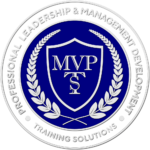In highly regulated and fast-paced organizations, carrying out complex tasks requires accuracy and close attention to detail. This is a part of the training program offered to employees. Moreover, errors can not only be time-consuming but also costly to rectify.
In hands-on how to improve accuracy and attention to detail training courses, you will learn what influences the likelihood of errors occurring and how to develop practical skills to overcome the natural barriers to accuracy.
Don’t we all want to be accurate and not make mistakes in our workplace? You can improve your attention span with the how to improve accuracy and attention to detail training course, and isn’t that what we all want and need?
Key Benefits of Attending According to Business Wire:
- Master techniques to improve accuracy and attention to detail in day-to-day work
- Understand the psychology of attention and accuracy
- Learn how to improve attention span and accuracy
- Discuss how to improve focus and concentration to enhance performance
What is the Significance of Accuracy and Attention to Detail?
In any field, errors can lead to severe consequences. Hence, this can range from financial losses to compromised safety and damaged reputations. Inaccurate data entry, faulty calculations, miscommunications, and oversight of crucial details can all have far-reaching effects.
Consequently, organizations that prioritize accuracy and attention to detail are better positioned to deliver exceptional products and services. Thus, build trust with clients, and cultivate a culture of excellence.
Understanding the Factors Influencing Accuracy:
Achieving precision in a fast-paced work environment can be challenging, as there are numerous factors that can hinder accuracy and attention to detail. Distractions, multitasking, time pressure, fatigue, inadequate training, and even personal biases can all contribute to errors.
Furthermore, recognizing and addressing these factors is essential for developing effective strategies to improve accuracy.
What are the Skills Taught in Attention to Detail Courses?
Mindfulness and Focus:
Training courses should emphasize the importance of being present and fully engaged in tasks.
Moreover, practicing mindfulness techniques, such as deep breathing exercises or meditation. Hence, this can help employees sharpen their focus and reduce distractions.
Effective Time Management:
Properly managing time is crucial for maintaining accuracy. Employees should be encouraged to allocate sufficient time for each task. Similarly, allowing them to work at a comfortable pace without feeling rushed.
Similarly, establishing realistic deadlines and breaking down complex projects into manageable segments can also enhance precision.
Checklists and Standard Operating Procedures:
Implementing checklists and SOPs can provide a structured approach to tasks, ensuring that no crucial steps or details are overlooked.
Furthermore, these tools act as reliable guides, reducing the margin for error and improving overall accuracy.
Double Checking and Verification:
Encouraging employees to adopt a habit of double-checking their work can significantly enhance accuracy.
Furthermore, this simple step can catch potential errors and allow for prompt corrections before they escalate. Verification processes, such as peer reviews or supervisor sign-offs, can further strengthen accuracy.
Attention to Communication:
Clear and concise communication is vital for accurate information exchange. Training courses should focus on effective communication techniques, emphasizing active listening, paraphrasing, and seeking clarification when necessary.
Moreover, this helps minimize misunderstandings and ensures accuracy in relaying information.
Continual Learning and Feedback:
Organizations should foster a culture of continuous learning and improvement. Encouraging employees to seek feedback, both from supervisors and peers allows for ongoing development of accuracy and attention to detail skills.
Providing constructive feedback and offering targeted training programs based on identified areas for improvement can drive long-term progress.
